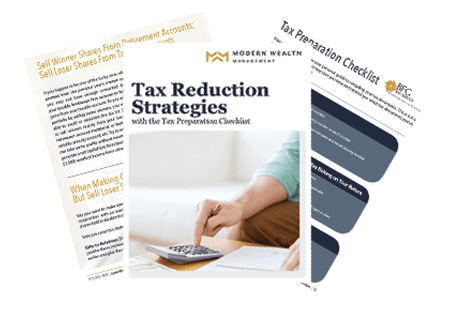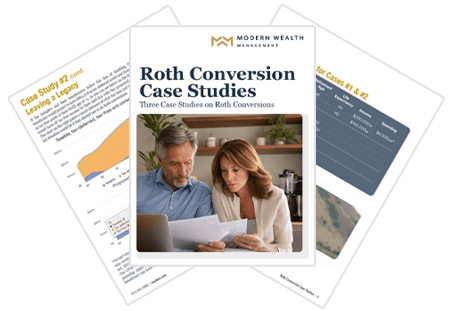Do I Need a CPA?
Key Points – Do I Need a CPA?
- The Opportunity Cost Involved with Hiring a CPA
- The Two Different Types of CPAs
- Financial Decisions That Impact Taxes
- A Comprehensive Financial Plan Includes a Forward-Looking Tax Plan
- 6-Minute Read
Do I Need a CPA and Why?
The complexity of someone’s tax situation depends on several different factors, such as marital status, income level, and where you live. Some people feel confident that they can file their own tax return to avoid the cost of hiring a CPA. But does the cost of hiring a CPA really outweigh potentially making a mistake on your return and/or missing out on tax reduction strategies that you didn’t know about? Let’s review why to consider hiring a CPA.
The Two Types of CPAs
As you’re weighing whether you need a CPA, it’s important to understand that there are two types of CPAs. Many of them take a reactive approach and report on history as they’re filing your return. However, there are also CPAs that take a proactive approach by looking for tax planning opportunities that can potentially help an individual reduce their tax liability over their lifetime rather than on a year-by-year basis.
“There are two types of CPAs. You have the ones that are focused on getting the numbers on the tax return and then they’re done. And then you have the other ones that are planning focused.” – Martin James, CPA, PFS
Marty is one of our CPAs and Managing Directors at Modern Wealth. Our CPAs are actually a hybrid of those two types of CPAs. Tax preparation is part of our Tax Advantage Offering that we provide our clients. We want to make sure to align your financial plan and tax strategies. Tax planning is a huge component of that.
When our CPAs review an individual’s financial plan, they’re not only thinking about the current tax bracket you’re in. They think about what strategies can be used to efficiently manage what tax bracket you’ll be in long-term. Download our Tax Reduction Strategies guide below to see some examples of potential strategies to consider.

Understanding the Three Tax Buckets
Remember that the tax planning strategies that worked well for your friend, neighbor, or coworker might not be the most effective strategies for you (and vice versa). For instance, if you have most of your money saved in a traditional 401(k) and IRAs, it may make sense for you to do Roth conversions.
There are three different tax buckets — tax-deferred, tax-free, and taxable. Traditional 401(k)s and IRAs are in the tax-deferred bucket. That means that money won’t be taxed until you take it out of the account. So, keep in mind that if you have $X amount in a traditional 401(k), you still need to factor in that those funds have yet to be taxed.
“It’s important to have a CPA who understands various investment vehicles.” – Martin James, CPA, PFS
By converting some of those funds to a Roth IRA, you’re getting money over into the tax-free bucket. You’ll be required to pay tax on the conversion, but the money will come out tax-free if you follow certain IRS rules. Additionally, Roth IRAs aren’t subject to Required Minimum Distributions.
Roth Conversion or No Roth Conversion?
The decision of whether to convert to a Roth IRA (or save to a Roth 401(k)) isn’t just about you either. If leaving a legacy for your children and/or grandchildren is important to you, that tax-free inheritance can play a significant role in helping them build their wealth. On the other hand, inheriting an IRA during their peak earning years could further complicate their tax situation. Under the SECURE Act, non-eligible designated beneficiaries must empty the IRA within 10 years following the account owner’s death.
If you’re considering a Roth conversion, make sure to consult a CPA prior to taking any action. There could be some additional incentive to doing Roth conversions at current tax rates if the Tax Cuts and Jobs Act sunsets after 2025 as it’s currently scheduled to do. If that happens, tax rates would revert to the pre-TCJA levels from 2017, which are higher than today’s rates.
President Donald Trump and many Republicans in Congress have stated that they want to extend the TCJA provisions.1 If there is an extension, will it be permanent or temporary? Given the uncertainty about future tax policy, it’s important to work with a CPA who consistently studies tax law.
You Need a CPA to Navigate Roth Conversion Decisions
If you decide that you want to do a Roth conversion, you might be surprised if a CPA tells you that there are instances in which it doesn’t make sense to convert. For example, converting to a Roth IRA could potentially push you into a higher Medicare bracket. Have you heard of IRMAA? It stands for Income-Related Monthly Adjustment Amount, which is a surcharge on Medicare Part B and D premiums. IRMAA is based on your Modified Adjusted Gross Income on your tax return from two years prior. If that wasn’t something you were aware of, that’s another reason why you might need a CPA.
“You tend not to think that part of your health care decisions need to be based on what you’re reporting on your income. Not only do you need a Medicare expert, but you need a tax professional to help you understand what your expenses are going to look like. It’s the same thing for long-term care. Covering your health insurance and whether you need long-term care insurance are two big concerns that can potentially have big tax implications.” – Matt Kasper, CFP®, AIF®
Considering Qualified Charitable Distributions
Another reason why it may not make sense to do a Roth conversion is if you’re 70½ or older and are charitably inclined. If that’s the case, you may want to consider taking Qualified Charitable Distributions (QCDs). In 2025, IRA owners who are 70½ are eligible to donate up to $105,000 directly from their IRA to a qualified charity without it showing up on their tax return. QCDs can also be used as a strategy to reduce your RMDs.
As you can hopefully start to see, the decision of whether to convert or not to convert to a Roth IRA isn’t cut and dry. Our CPAs try to be methodical when doing Roth conversions for clients. How can they get money over into the tax-free bucket with there being significant spikes in the client’s tax bracket? That’s a question that’s constantly on their minds. To learn more about the Roth conversion considerations that our CPAs keep in mind, download our Roth Conversion Decisions Guide below.

Other Tax Reduction Considerations
Roth conversions are just one example of tax reduction strategies that our CPAs consider utilizing for our clients depending on their situation. Tax-loss and tax-gain harvesting are a couple of other strategies to keep in mind. It’s also crucial to understand that Social Security benefits are taxable based on other sources retirement income. Did you know that if your provisional income is more than $44,000, up to 85% of your Social Security benefits could be taxable? If you’re unsure about how much provisional income you have, how to calculate it, or what it is, you need a CPA.
The CFP® Professional and CPA Relationship
As we wrap up this article about why to consider hiring a CPA, let’s circle back really quick to this excerpt of Matt Kasper’s quote.
“Not only do you need a Medicare expert, but you need a tax professional to help you understand what your expenses are going to look like.”
Matt and the rest of our financial advisors try to be well-versed as possible in each of our Modern Wealth Advantage Offerings — tax, estate, insurance, investments, and financial planning. However, Matt doesn’t pretend to have the same amount of tax knowledge that our CPAs, Enrolled Agents, or other tax professionals have. He’s thankful that he can work with Marty, the rest of our tax team, and our other wealth management professionals that specialize in insurance, investments, and estate so that our clients can confidently make informed wealth management decisions.
To get a more in-depth understanding of how our CFP® Professionals and CPAs specifically work together on behalf of our clients, check out this podcast on the CFP® Professional and CPA relationship with Logan DeGraeve, CFP® and Corey Hulstein, CPA.
If you’re still asking yourself whether you need a CPA or want to learn more about what our CPAs and other tax professionals can potentially do for you, start a conversation with our team here.
Our team wants to make sure that you have a comprehensive financial plan, which includes a forward-looking tax plan, that’s tailored to your unique goals. We look forward to building you a plan that’s centered around your goals and showing you how a CPA plays a pivotal role in building your plan.
Resources Mentioned in This Article
- 2025 Tax Brackets: IRS Makes Inflation Adjustments
- 2025 401(k) and IRA Contribution Limits
- DIY Retirement Planning: What Can Be Overlooked?
- 5 Tax Filing Errors to Avoid
- 2024 Tax Return Tips
- Tax Reduction Strategies for High Income Earners
- Tax Planning Tips with Corey Hulstein, CPA and Martin James, CPA, PFS
- How Do I Pay Less Taxes?
- 2025 Taxes: What to Watch
- 5 Types of Financial Plans
- 2025 Tax Brackets and Contribution Limits
- Traditional vs. Roth 401(k)
- 5 Reasons to Convert to a Roth IRA
- Roth Conversions Before and After Retirement
- Roth Five-Year Rule
- How Does a Roth IRA Grow?
- IRA RMD Requirements
- Generational Wealth Management
- 6 Levels of Wealth
- What to Do with Inheritance
- What Is the SECURE Act?
- Inherited IRA Rules and the SECURE Act
- What Is Tax Diversification?
- Tax Rates Sunset in 2026 and Why That Matters
- What If We Go Back to Old Tax Rates?
- 5 Reasons NOT to Convert to a Roth IRA
- 5 Tax Secrets Retirees Need to Know
- What Is IRMAA? Medicare Income-Related Monthly Adjustment Amount
- Retiring with $2 Million
- What Is a QCD? Qualified Charitable Distribution
- Charitable Giving in Retirement
- How to Reduce RMDs with 5 Strategies
- Health Care Costs During Retirement
- 5 Long-Term Care Questions to Ask
- 5 Tax Planning Examples
- Maximize Social Security Benefits
- Taxes on Retirement Income
- Are Retirement Benefits Taxable?
- The CFP® Professional and CPA Relationship with Logan DeGraeve, CFP® and Corey Hulstein, CPA
Downloads
Other Sources
Investment advisory services offered through Modern Wealth Management, Inc., a Registered Investment Adviser.
The views expressed represent the opinion of Modern Wealth Management a Registered Investment Advisor. Information provided is for illustrative purposes only and does not constitute investment, tax, or legal advice. Modern Wealth Management does not accept any liability for the use of the information discussed. Consult with a qualified financial, legal, or tax professional prior to taking any action.